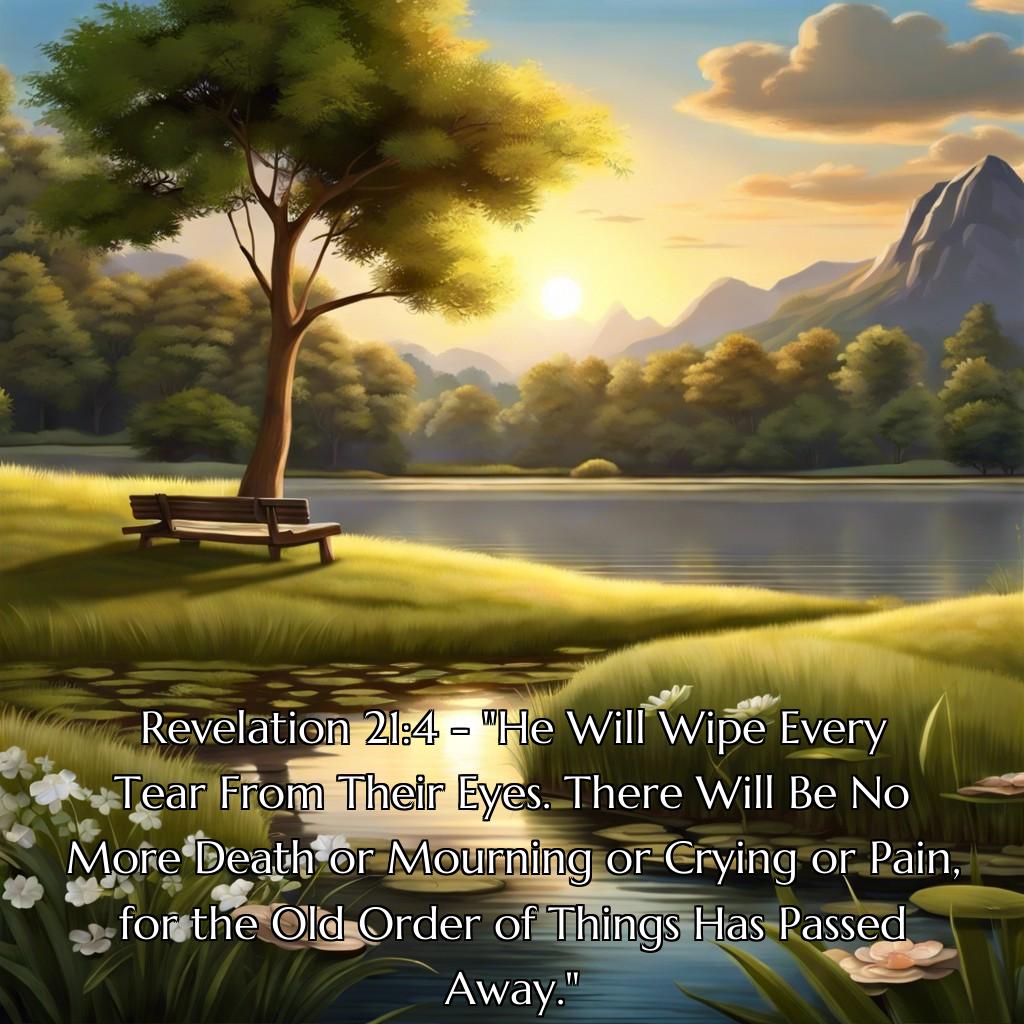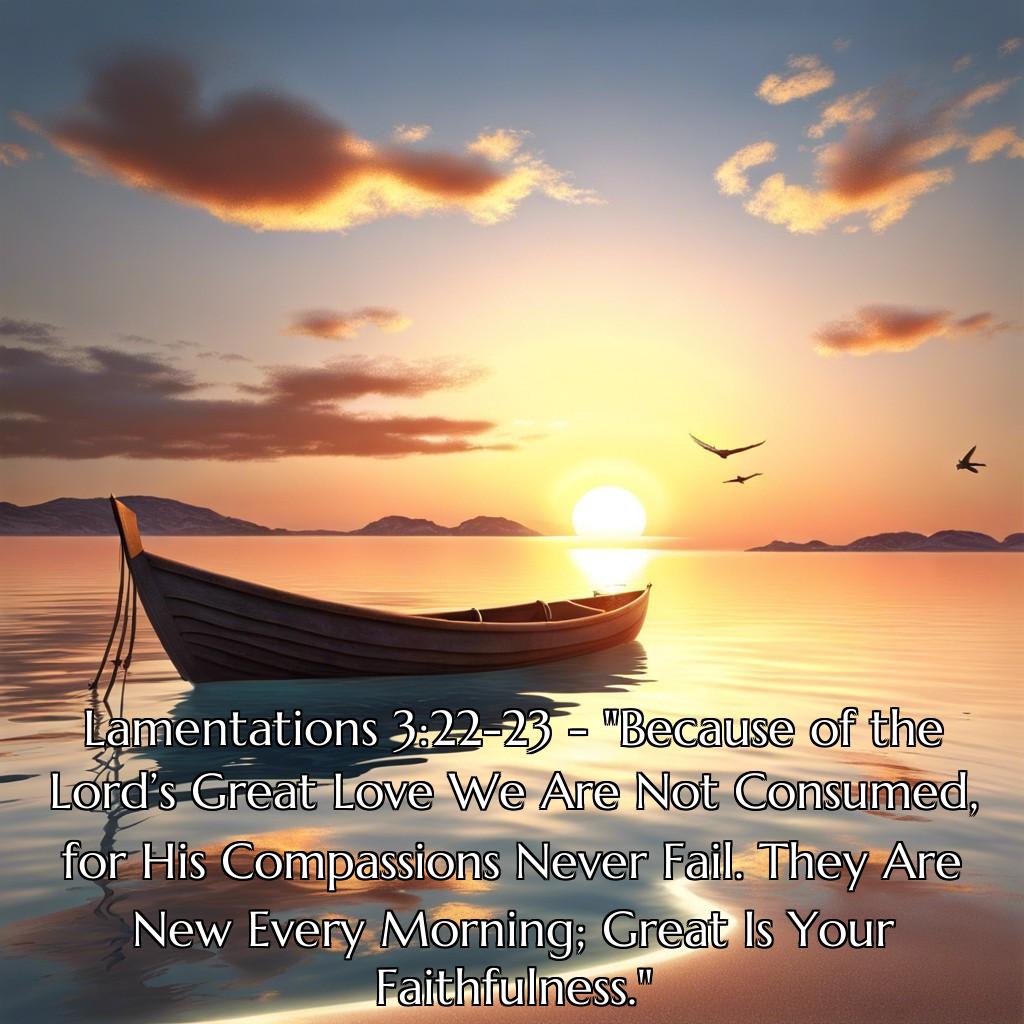This article lists Bible verses about sadness and explains their meanings, offering comfort and hope for difficult times.
Sadness is an intrinsic part of the human experience, but the Bible offers profound solace and hope that can light the darkest moments. In the following verses, you’ll find God’s promises of comfort and healing, His assurances of His presence during your struggles, and the ultimate hope of eternal peace. Dive in to discover scripture that speaks directly to the brokenhearted, providing spiritual balm and a renewed sense of faith.
Psalm 34:18 – “The Lord Is Close to the Brokenhearted and Saves Those Who Are Crushed in Spirit.”

This verse beautifully highlights God’s closeness during our most painful moments.
First, it affirms that God is not distant but actively near when we’re hurting. His presence becomes an anchor in moments of despair.
Second, being “crushed in spirit” resonates with many who feel entirely overwhelmed. This verse assures us that no matter how intense our sorrow, God is there to save us.
Lastly, it offers a sense of hope and comfort, emphasizing that the pain we feel invites divine compassion and rescue.
Matthew 5:4 – “Blessed Are Those Who Mourn, for They Will Be Comforted.”

This verse is part of the Beatitudes, where Jesus offers blessings to those enduring difficult times. It suggests a paradoxical truth: in mourning there is a pathway to comfort.
- Jesus acknowledges that experiencing grief is a fundamental part of the human condition.
- The promise of comfort highlights God’s empathy and assurance for those who suffer.
- It suggests that mourning opens individuals up to receive divine consolation and support from others.
- Reflects the broader biblical principle that God is close to the brokenhearted and actively involved in their healing.
- Encourages a perspective of hope, emphasizing that sorrow is not the end but a step towards experiencing God’s presence and care.
Psalm 147:3 – “He Heals the Brokenhearted and Binds Up Their Wounds.”

God understands the depths of human sadness and reaches out with healing and comfort.
This verse speaks to His role as a healer. When you’re brokenhearted, you need more than just time; you need divine intervention. God’s healing isn’t just physical but emotional and spiritual.
When it says He “binds up their wounds,” it shows how God takes an active role in your recovery. Imagine a caregiver who bandages a wound. It’s a process of cleaning, dressing, and ensuring it heals properly.
God’s compassion is evident in this act. He doesn’t merely observe your pain but steps in to mend it. This assures you that you’re not alone in your struggles.
Sadness can make you feel isolated, but this verse promises that the Creator is intimately involved in your healing journey. God’s commitment to healing reflects His deep love and compassion for you.
John 16:33 – “I Have Told You These Things, So That in Me You May Have Peace. In This World You Will Have Trouble. But Take Heart! I Have Overcome the World.”

In this verse, Jesus acknowledges that life is not devoid of challenges and troubles. Despite this reality, He offers a profound comfort.
First, Jesus preaches peace—an inner tranquility rooted in faith in Him. This peace isn’t temporary; it’s enduring and steadfast, unaffected by external chaos.
Second, Jesus emphasizes that troubles are part of life. It’s a refreshing honesty that resonates with our everyday experiences.
Finally, the highlight of this verse is His victory over the world. This triumph assures believers that no matter the weight of sadness or difficulty, there is an overarching hope and ultimate victory in Christ.
This verse encourages believers to take heart and find solace in Jesus’ victory, fostering resilience amidst sadness.
Revelation 21:4 – “He Will Wipe Every Tear From Their Eyes. There Will Be No More Death or Mourning or Crying or Pain, for the Old Order of Things Has Passed Away.”

This verse offers a powerful promise of hope and renewal. It envisions a future where God Himself will comfort those in sorrow.
Firstly, it emphasizes the personal nature of God’s care. The imagery of God wiping tears is deeply intimate, suggesting His closeness and tenderness towards us.
Secondly, the verse points to a time when pain and suffering will be completely eradicated. This reinforces the belief that current struggles are temporary.
Lastly, it speaks of a transformative future. The “old order” passing away signifies a radical change where all aspects of suffering are replaced with eternal joy and peace.
2 Corinthians 1:3-4 – “Praise Be to the God and Father of Our Lord Jesus Christ, the Father of Compassion and the God of All Comfort, Who Comforts Us in All Our Troubles, So That We Can Comfort Those in Any Trouble With the Comfort We Ourselves Receive From God.”

This verse has a profound depth that speaks about the cycle of comfort in the face of sadness. Firstly, it highlights God as the source of all compassion. No matter how deep our sorrow, His compassion knows no bounds.
Secondly, it affirms that God comforts us in all our troubles. It’s a reassuring thought that we are never alone in our pain. His presence is a source of solace.
Thirdly, the verse encourages us to extend that comfort to others. Experiencing God’s comfort firsthand equips us to support and console those facing their own troubles.
It’s a beautiful reminder that our suffering and the comfort we receive can ultimately serve a greater purpose – helping others in their times of need.
Psalm 42:11 – “Why, My Soul, Are You Downcast? Why So Disturbed Within Me? Put Your Hope in God, for I Will Yet Praise Him, My Savior and My God.”

Feeling downcast and disturbed is a common experience, and this verse perfectly captures that sentiment. However, the beauty lies in the psalmist’s response.
Put your hope in God. This isn’t just a suggestion; it’s a powerful call to redirect your focus. When sadness overwhelms, anchoring yourself in hope can shift your perspective.
Expect to praise again. The psalmist anticipates future praise, indicating that sadness is temporary. This outlook shines a light at the end of the tunnel, encouraging persistence through tough times.
Acknowledge your emotions. The verse shows it’s okay to question why you’re feeling low. This acknowledgment is a step towards healing and understanding your emotional state.
Remember your Savior. Turning your thoughts to God as your Savior can provide immense comfort. It’s a reminder of divine presence and support, even in your lowest moments.
By internalizing these concepts, you can find a way to navigate through sadness with a hopeful heart.
Isaiah 41:10 – “So Do Not Fear, for I Am With You; Do Not Be Dismayed, for I Am Your God. I Will Strengthen You and Help You; I Will Uphold You With My Righteous Right Hand.”

This verse offers a powerful assurance from God during times of sadness. Here are the key concepts to grasp:
- Divine Presence: God reassures He is always with us, reducing our fear and uncertainty.
- Refuge in God: We are reminded not to be dismayed because God is our sovereign protector.
- Strength and Support: The promise of strength and assistance from God shows we don’t have to face challenges alone.
- Righteous Right Hand: The right hand signifies strength and honor, representing God’s unwavering support and justice.
Reflecting on these points, we can see how this verse provides profound comfort and encouragement during hardships. It’s a reminder of God’s unwavering companionship and support.
Romans 8:18 – “I Consider That Our Present Sufferings Are Not Worth Comparing With the Glory That Will Be Revealed in Us.”

Paul, in this verse, offers a profound perspective on the trials of life. He encourages believers to focus on the future glory that will overshadow present sufferings. This future glory refers to the eternal joy and peace in God’s presence.
Here are some key takeaways:
- Perspective: Paul encourages a shift from focusing on present pains to anticipating future joy.
- Hope: The verse instills hope, reminding believers that their struggles are temporary.
- Faith: It emphasizes trusting in God’s promise of future glory.
- Endurance: By keeping eternal promises in mind, believers can endure hardships with patience and grace.
This verse serves as a reminder that current suffering has a purpose and leads to a future filled with God’s glory.
Lamentations 3:22-23 – “Because of the Lord’s Great Love We Are Not Consumed, for His Compassions Never Fail. They Are New Every Morning; Great Is Your Faithfulness.”

This verse from Lamentations reassures us of God’s unending love and mercy. Despite our sadness and struggles, God’s compassion remains steadfast.
First, it emphasizes that God’s love prevents our complete downfall. No matter how deep our sorrow, His love sustains us.
Second, it highlights the constant renewal of God’s compassion. Each day brings new opportunities for His mercy to refresh our spirits.
Lastly, it underscores His unwavering faithfulness, reminding us that God is consistently reliable, no matter our circumstances. This encourages trust in His promises and helps us find solace in times of sadness.





